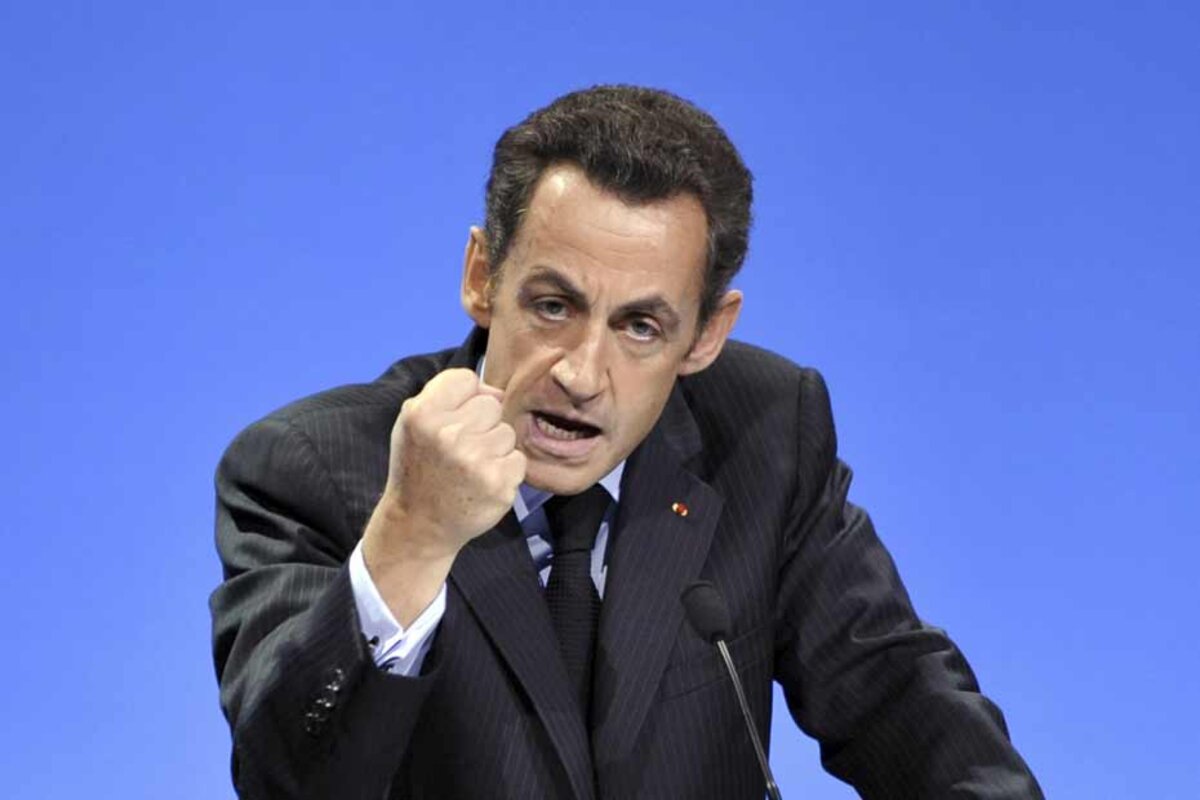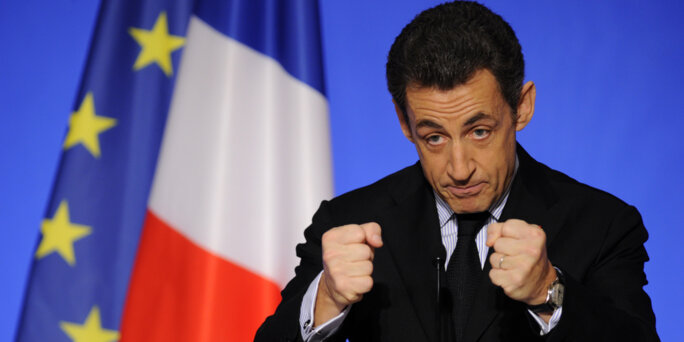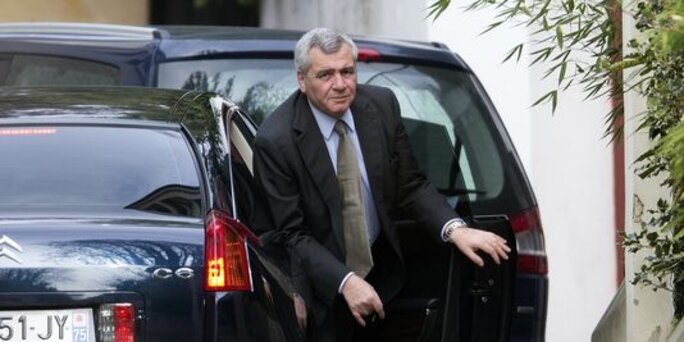France's highest court, the Cour de Cassation, has backed the use of telephone taps on Nicolas Sarkozy that led to the former French president being placed under formal investigation for alleged corruption and influence peddling. The ruling by the court on Tuesday March 22nd now potentially paves the way for Sarkozy to be formally charged and sent for trial over the affair, which involves claims he sought to induce a senior judge to obtain confidential information about another judicial case involving the former head of state.

Enlargement : Illustration 1

If Sarkozy is indeed sent for trial then this would represent a potential blow to his political ambitions ahead of the autumn primary election to be held by his right-wing Les Républicains (LR) party, designed to choose a candidate for the 2017 presidential election. Any trial, however, seems unlikely to take place until after the presidential poll. The former head of state, who became the LR president after returning to front-line politics in 2014, and who was received by Pope Francis in Rome on Monday March 21st, has not yet formally declared his candidacy. But he is widely expected to do so in the coming months. The former prime minster and current major of Bordeaux, Alain Juppé, is seen as his biggest rival in the primary.
In February 2016 Sarkozy was also placed under investigation in an entirely separate case, for his suspected role in a system of false invoicing that hid the vast overspending of his failed 2012 re-election bid. Many of his close allies are also facing judicial investigations in cases involving alleged corruption, money laundering, fraud and influence peddling. If Sarkozy is sent for trial, he would be following in the footsteps of his predecessor President Jacques Chirac, who stood trial in 2011.
In Tuesday's judgement, the Cour de Cassation rejected Nicolas Sarkozy's appeal against a decision by examining magistrates Patricia Simon and Claire Thépaut in July 2014 to investigate him over corruption allegations. Sarkozy was put under formal investigation – one step short of charges bring brought – for “corruption” and “influence peddling” plus breaching professional secrecy rules over claims that he used his lawyer, Thierry Herzog, to obtain confidential legal information about the Bettencourt affair from senior judge Gilbert Azibert. In return Azibert is said to have sought help in getting a top job in Monaco. The two other men are also under formal investigation and were involved in the unsuccessful appeal.
Read the court's ruling (in French only) below:
The backdrop to the current probe into alleged corruption by Sarkozy centres on the former president's diaries. These had been seized by judges investigating the Bettencourt affair. Once the case against him in that affair was dropped, the former president wanted to annul the seizure of these diaries, to stop them being used in other affairs that threatened him. The claim is that Azibert spoke to colleagues at the Cour de Cassation and consulted documents on the court intranet to find out the progress of the legal moves to get the diaries returned, and then reported back to Herzog.

Enlargement : Illustration 3

As a senior magistrate in the civil division of that court, Azibert had no business involving himself in matters that related to the Bettencourt affair, which was being dealt with by the criminal division of the Cour de Cassation. In return for his information Azibert is said to have wanted Sarkozy's help in obtaining a plum job as a state advisor in Monaco. According to taped conversations Sarkozy agreed to this request, though ultimately he did not follow through on it. And Azibert did not get the job in Monaco. Sarkozy's legal team see this as proof that there was no wrongdoing involved. But investigators claim this can be explained by the fact that Sarkozy had in the meantime learnt that all his phones, not just his official ones, were being tapped.
'My client is going to continue to fight'
The trio's appeal to the Cour de Cassation was based on the status and validity of those telephone taps that provide the basis for the current case, which has been dubbed the 'Paul Bismuth affair' after the alias used by Sarkozy for phone conversations when he feared his official phones were being tapped. For those phone taps had been put in place by examining magistrates investigating another affair altogether – the claim that Sarkozy's 2007 campaign was funded by Colonel Gaddafi's Libya.
In court, Sarkozy's lawyer Patrice Spinosi had argued that “Nicolas Sarkozy [is the] object of every judicial fantasy”, the victim of “lengthy and dragnet” telephone taps, in other words unlawful ones. In essence the lawyer maintained that making available the transcripts of the telephone taps put on Sarkozy in one investigation for another probe – the current affair - had deprived his client of the right to check the procedural validity of those phone taps. Thierry Herzog's barrister Emmanuel Piwnica highlighted the “confidentiality of conversations between the lawyer and his client” a confidentiality, he argued, that was undermined by the judicial phone taps put on the telephone line belonging to Nicolas Sarkozy. Gilbert Azibert's lawyer, Hélène Farge, had told the court that the procedure had been “hijacked” and that the police and judges' investigations had been pursuing facts which were not within their remit. All three men have denied any wrongdoing.
However, the Cour de Cassation has now ruled that the investigating judges in the current case were entitled to use and rely on most of the information gleaned in those telephone taps. The court did agree that certain conversations that were recorded - such as that between Herzog and the representative of his Bar Association - plus some documents seized by police at the Cour de Cassation irself were inadmissible, but these have little bearing on the case itself.
It is now down to the national financial prosecution office, the Parquet National Financier (PNF), to state its formal view as to what should happen to the three men under investigation. Then in the months ahead the investigating magistrates themselves will make the final decision on whether to send Nicolas Sarkozy, Thierry Herzog and Gilbert Azibert for trial.

In theory the judges could make their final decision as early as the beginning of June this year. Though they could order proceedings to be dropped, given the fact that three people face formal investigations in the case, and the nature of the evidence, it seems more likely that the trio will be sent for trial.
It normally takes between four and nine months for the official order sending defendants for trial to be signed. The trial itself would take place six months to a year later. In other words any announcement that Nicolas Sarkozy is to face trial could well take place before the Right's primary this autumn. But it seems more likely that the trial itself would take place after the presidential elections in the spring of 2017. There is an unwritten rule that politicians do not stand trial during elections.
Nicolas Sarkozy's lawyer in the case, Patrice Spinosi, reacted with dismay after the Cour de Cassation's ruling while noting his client was considering further action. “These are unhealthy proceedings that are now going to continue,” he said. Spinosi insisted the whole case against the former president was “fragile” and said: “No, it's not over at all. There are possible recourses, such as very certainly referring the case to the European Court of Human Rights. Obviously Nicolas Sarkozy is going to continue to fight, to assert his rights and to demand that justice be done.”
Sarkozy's political allies meanwhile sought to play down the impact of Tuesday's ruling. Les Républicains party treasurer Daniel Fasquelle said he was “very calm” about the verdict “convinced [as I am] that in this affair as in all the others it will end with the case being dropped”. LR Member of Parliament Georges Fenech, a former judge, said: “I find it hard to think there will be a conviction in this affair.” He also said that the Cour de Cassation's verdict was “no obstacle” to Sarkozy standing in the Right's primary later this year – a view echoed by fellow MP Claude Goasguen.
--------------------------------------------------------------------
- The French version of this article can be found here.
English version by Michael Streeter


